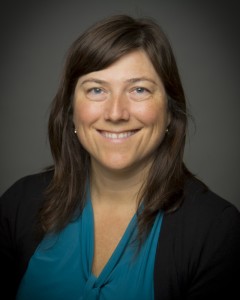Correction: An earlier version of this story had the Camosun College Student Society’s Andrea Eggenberger saying this funding was related to the federal Truth & Reconciliation Commission, which it is not. We apologize for the mistake.
The Ministry of Advanced Education recently announced a $3.7-million investment toward the creation of a more welcoming learning environment for aboriginal postsecondary students in BC.
There are 25 public postsecondary institutions in BC, and Camosun College is one of 11 that will receive funding. The college will receive $390,600.
Minister of Advanced Education Andrew Wilkinson explains that the decision processes that went into funding allocation and the future of Aboriginal Service Plans funding were the result of a competitive Expression of Interest process open to all public post-secondary institutions in BC.
“The ministry is currently looking at options to expand the program to other institutions by 2016, and Aboriginal Service Plans will be ongoing,” says Wilkinson.

Camosun College Aboriginal Service Plan projects coordinator Tanya Kirkland says the $390,600 allocated to Camosun will help in meeting specific goals.
“We applied for funding because it’s an incredible opportunity to be able to provide additional programs, services, and supports for indigenous students at Camosun College,” says Kirkland.
The Ministry of Advanced Education also has specific goals they would like to see realized. By 2020/21 they hope to see a significant increase in credentials awarded to aboriginal students.
“The goal of the Aboriginal Post-Secondary Education and Training Policy Framework and Action Plan is to increase credentials awarded to aboriginal learners by 75 percent,” says Wilkinson. “The plan includes a range of programs and supports to help aboriginal learners complete their studies and go on to future success.”
According to the ministry, there has been a 23-percent increase in credentials awarded to aboriginal students from 2009/10 to 2013/14. Aboriginal Service Plans are just one initiative the ministry has created to help aboriginal learners in BC: the aboriginal community-based Delivery Partnership Program and the Aboriginal Training for Employment Program have also received funding in the last few years.
Camosun College Student Society external executive Andrea Eggenberger is pleased to see some action toward helping aboriginal students in BC.
“It’s nice to see some action happening,” says Eggenberger. “People were really wondering, is there going to be anything behind this? And it’s nice to see that yes, there is funding behind this, there is a plan happening, that goal is being realized.”
Eggenberger says that this is an important way for the province to be allocating finances.
“It’s not just about providing grants,” she says. “It’s about providing services that are important to aboriginal learners.”
Wilkinson says it’s important that the government work with aboriginal and First Nations people.
“It is critical,” he says, “that all levels of government, and indeed all Canadians, work in partnership with First Nations and aboriginal people to address the challenges faced by communities, including socioeconomic gaps and healing.”
The funding Camosun is receiving will help to provide aboriginal students a better sense of belonging during their postsecondary experience, says Kirkland.
“We call creating a better sense of belonging at the institution indigenization,” says Kirkland. “That’s a big part of the work that’s done here, to reflect indigenous ways of knowing and being and doing within the college system, within the classrooms, and within the structure itself.”
